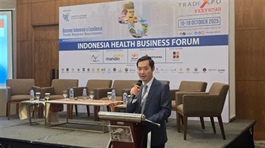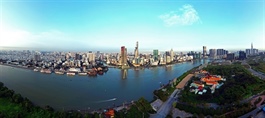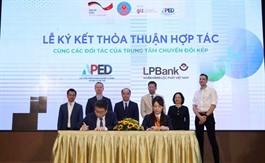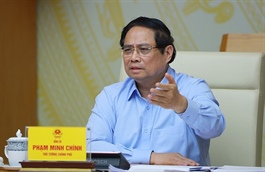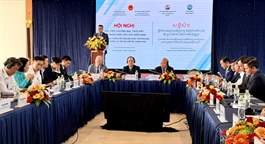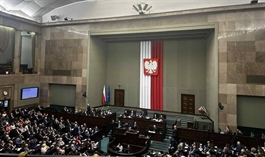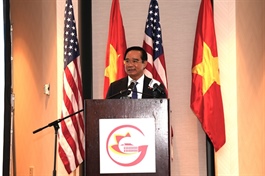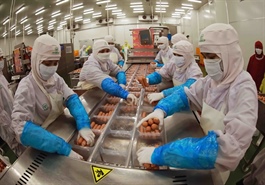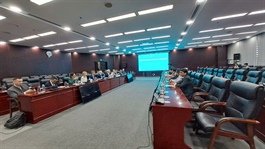Authorities warned about risks of expected inflation from asset price fevers
Authorities warned about risks of expected inflation from asset price fevers
It is still necessary to be cautious about the risks of local price increases in some speculative areas such as real estate, gold, silver, or some rare raw materials, as this increase can trigger expected inflation, creating pressure on the general price level.
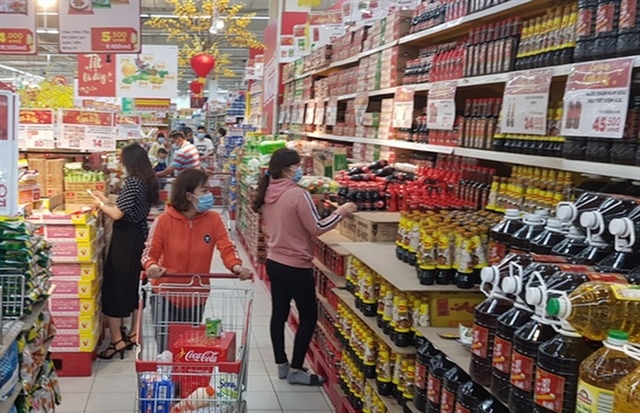
The consumer price index in the first 9 months of this year increased by 3.27 per cent compared to the same period last year. Photo baochinhphu.vn |
Experts predict Việt Nam is likely to keep inflation below 4 per cent in 2025, in line with government targets, but caution that surges in asset prices could spark expected inflation and pressure general price levels.
According to the General Statistics Office (GSO), the consumer price index (CPI) in September 2025 rose 2.61 per cent compared to December 2024 and 3.38 per cent year-on-year. On average, in the first nine months of 2025, the CPI increased by 3.27 per cent compared to the same period last year.
Dr Nguyễn Quốc Việt, a public policy expert from the University of Economics under Vietnam National University, forecast that Việt Nam would achieve the inflation target set by the National Assembly and the Government.
However, he warned of potential risks from local price increases in speculative sectors such as real estate, gold, silver, or certain rare raw materials, which could trigger expected inflation and add pressure to the overall price level.
Exchange rate fluctuations and early-year devaluation of the Vietnamese đồng also raised concerns, increasing the cost of imported goods and raw materials.
“Macroeconomic management must continue to closely monitor asset price fluctuations to prevent expected inflation from spreading to actual inflation,” Việt said, emphasising the need to balance stability with growth, particularly in sensitive areas of the economy.
Head of the GSO’s Services and Prices Department Nguyễn Thu Oanh echoed these views, noting that inflationary pressure persists in the final months of the year.
Key risk factors, she said, would include prolonged geopolitical tensions, rising trade protectionism, and new US tax policies, which could affect global inflation and spill over to Việt Nam. Seasonal trends could also push up prices of food, garments, and construction materials at year-end and during the Lunar New Year, while natural disasters and floods could raise local commodity prices.
Real estate prices have surged sharply, with housing costs and rents increasing about 2.2 times higher than the general CPI, significantly influencing inflation. Accelerated production, consumption, and public investment activities at year-end further add to price pressure.
Despite these risks, Oanh expected inflation in 2025 to remain within the 4.5–5 per cent range set by the National Assembly, thanks to the Government’s experienced and proactive price management.
“If fiscal and monetary policies continue to be managed consistently, flexibly, and proactively in response to international fluctuations, inflation in 2025 is likely to remain within the set target while supporting sustainable economic growth,” she said.
Dr Nguyễn Thường Lạng, lecturer at the Institute of International Trade and Economics under the National Economics University, said slight interest rate adjustments could reduce money supply to the market, helping curb inflationary pressure.
He noted that a certain level of inflation was necessary during economic transition to maintain growth momentum, and that monetary policy, especially interest rate management, must remain flexible to avoid shocking the market.
Effective allocation of investment capital to high-tech and innovative sectors could increase productivity and added value, further supporting inflation control. Consumption stimulus and trade promotion policies that diversify markets, focus on key industries, and shift the economic structure appropriately would also be vital to stabilising prices and achieving sustainable growth.
“When capital flows, goods, and consumer demand are properly regulated, the economy will be more stable and inflation will be controlled naturally,” Lạng said.
- 08:12 21/10/2025



